The directing and creative collective, known as Bush+Renz, are the duo responsible for writing and filming what would prove to be The Movie Mensch’s top movie of 2020, Antebellum. The duo phoned us for an exclusive chat about the making of the piercing and timely drama and how they balanced the high-wire act that is keeping their narrative ever moving forward—all while making the most piercing of social commentaries we’ve seen during this most tumultuous of years.
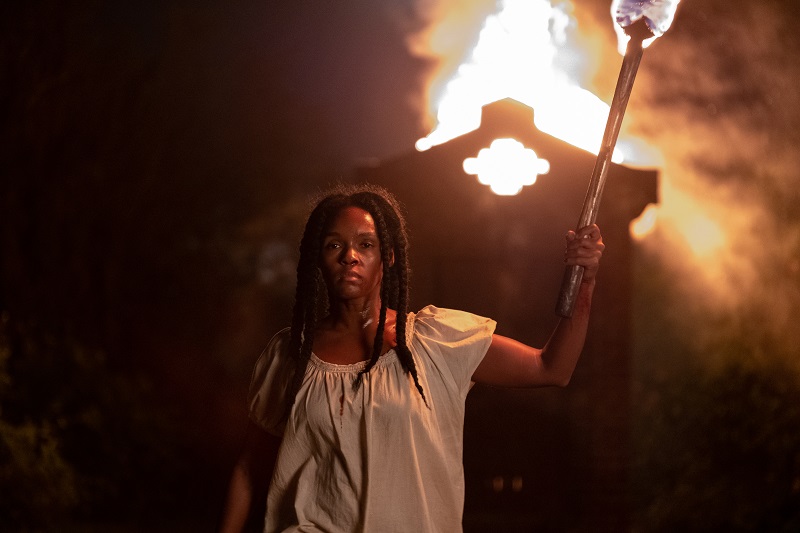
Gerard Bush and Christopher Renz’s Antebellum journey began with a nightmare, as we get right to it in our Q&A. Where exactly did this wildly original story come from and how has it changed from what was originally conceived to the final product that has caused quite a stir since it debuted in September of 2020. The pair also wax poetic about their leading lady, the multi-talented and prolific Janelle Monáe—who is charged with portraying dual roles in a duality of eras. There is a thread between the two and that aspect is firmly in Renz and Bush’s wheelhouse.
The electric ensemble is comprised of Jack Huston, Kiersey Clemons, Tongayi Chirisa, Gabourey Sidibe, Rob Aramayo, Lily Cowles, and Jena Malone. They each raise their game—keenly knowing that they are part of something truly special that has the rarest of cinematic opportunities—to change hearts and minds.
The two have been partners for years, joined by a shared passion for spotlighting those who time, history and society have let down at the best and wiped off the map at its worst. It can be seen in everything they create. Their goal of exposing the world to the “disenfranchised, marginalized, and underrepresented” could not have found a better and inspiring vessel than in their latest film, Antebellum. Bush and Renz have gifted the world the absolutely stunning work, and it is one that you will not be able to shake. Ever.
The Movie Mensch: Thank you for giving me a ring. It’s especially exciting for me. Antebellum was my choice for the number one movie of 2020.
Gerard Bush: Oh, wow!
Christopher Renz: Wow!
The Movie Mensch: It’s for a multitude of reasons, but I won’t get into them here because I want to hear you guys talk about it. I have to start with a burning question. What was the genesis of this story? Also, did it always have the form that we see today?
Gerard Bush: The genesis of the story is a nightmare that I had shortly after my father passed. And the nightmare was so real and so vivid. And it was this woman Eden, who I observed that was so desperate to get out of the situation that it felt like she was trying to communicate with me across dimensions. That’s the best way that I can describe it. And I was so jarred and so moved by the nightmare that I wrote down all the finer points of what I experienced so that I wouldn’t forget any of it the next day. And then the next day I had a conversation with [Christopher] about it. And then we put pen to paper, put the short story together, with no intention of it being a film. We have tremendous respect for the written word. We had written for Esquire and Time and Vanity Fair and felt like we could find a home for it for just a really powerful political read. And then we were introduced to who would eventually become the lead producer on the film, Zev Foreman, the producer of Dallas Buyers Club. Then he persuaded us to turn it into a full-length film and to write the script. The difference between the short story, all of that took place within what you thought was the Antebellum South. There was never the sort of modern piece, which is the second act of the script. And so that is what eventually became the structure of the film. There was the cell phone, all of that happened within the short story, but within the film, we transitioned from the cell phone ringing, and you being in the Antebellum South to even waking up as Veronica in her home in DC.
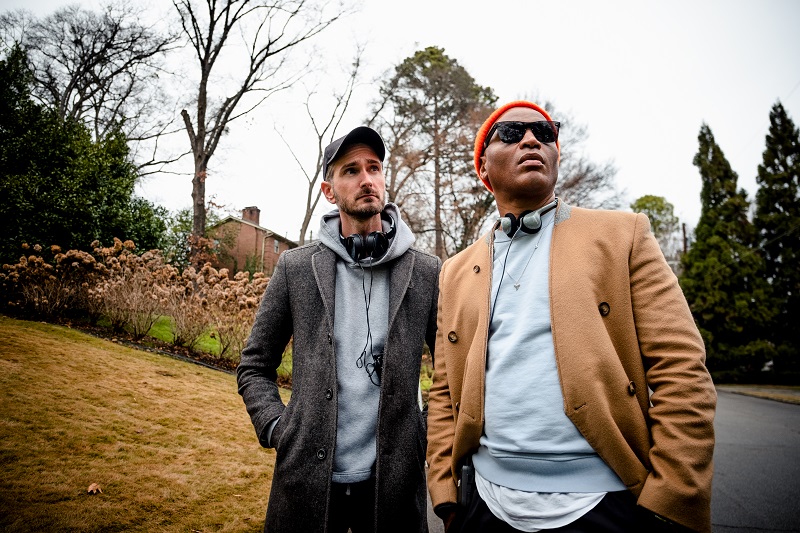
The Movie Mensch: Wow! What was it about Janelle that you knew that she could carry the weight of these dual characters, and do so in a manner that would grab the audience by the lapels and never let go?
Gerard Bush: We were not excited about telling such a difficult and provocative story as it relates to the history of American slavery, and the subjugation of black people in America since day one. But because it felt seated by the ancestors, we felt maybe naively protected or inoculated in some way. When we met and spent time with Janelle, she [that] too. The story was seated ancestrally and that, that is what really drew her to it. So, without sounding too new age, and please forgive me if I do—because I don’t mean to sound that way—it’s just the only way that I can describe why we felt so confident that Janelle.
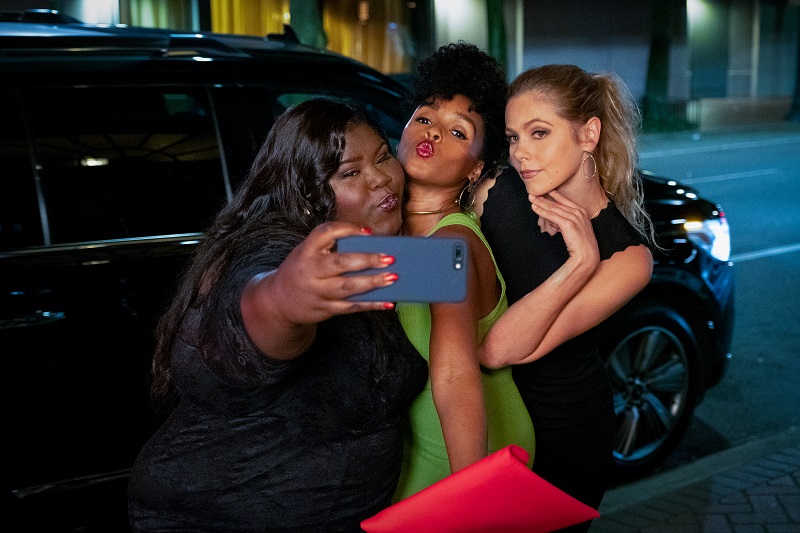
We should and could go on this ride with us and could shoulder the responsibility of the stamina of all of the calisthenics, the gymnastics that the character required. She also has this mythological quality, the superhero quality, and the quietest parts of who she as an artist, which we felt lent itself beautifully to what we were trying to capture in the film. So, we are really pleased that it turned out the way that it did and that the timing worked, and the collaboration happened.
The Movie Mensch: There are cinematic moments that have a fortune or misfortune of reflecting our place in history within our society. I found Antebellum could not have been more timely, in fact, in my review in the lead paragraph, I stated that after you watched this film if you still believe we don’t need a Black Lives Matter movement, there is something seriously wrong with you. When you’re writing a story like this, is striking a balance of societal commentary and rich storytelling, a challenge? Or does one feed off the other?
Gerard Bush: That’s a great question.
Christopher Renz: That is a great question. I think you really hit it on the head, that one feeds into the other. I mean, they’re not separate ideas. I think it’s an organic thing of what this character goes through in her everyday life, and what that looks like. And just drawing those parallels between the past is really not that difficult.
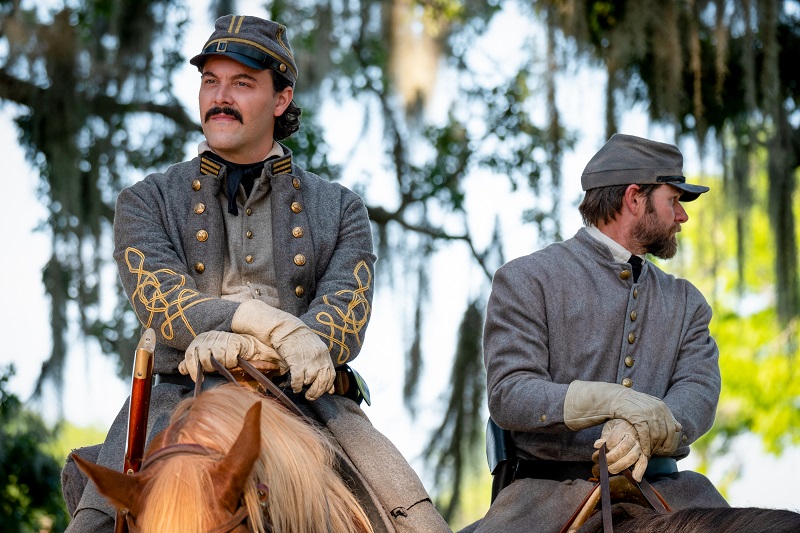
Gerard Bush: Look, I don’t know what it is to be white in America, I have no idea. And I… And Christopher has no idea other than having a black partner, what it is to be black in America. So, I think as my grandmother taught me, the truth is the easiest thing to remember. So, rather than thinking about those moments, as it relates to the social commentary of Black Lives Matter, remembering that we wrote this film several years before the movement, it wasn’t that we went back and re-shot or re-told any… That’s exactly the movie. It just ended up appearing, and feeling, and looking so prophetic or prescient.
But in fact, if you were following along as a black person and having the experience of what it is to be black in America, whether you come from, an Ivy League Education and grew up at the upper echelon of what it is to be black America, or you grew up on food stamps, you are having an experience that is uniquely black. That can only be explained through the lens of a black person. So, even with those microaggressions, like as a black person in America, Who I consider—I know myself to be quite privileged—but at the same time, I experienced those microaggressions that are written within the film all the time on a daily basis. It is just the reality that I think is important for white America and people that don’t understand because they aren’t having that experience. The most effective way to pluck that empathetic cord is to really tell you the truth and show it to the audience.
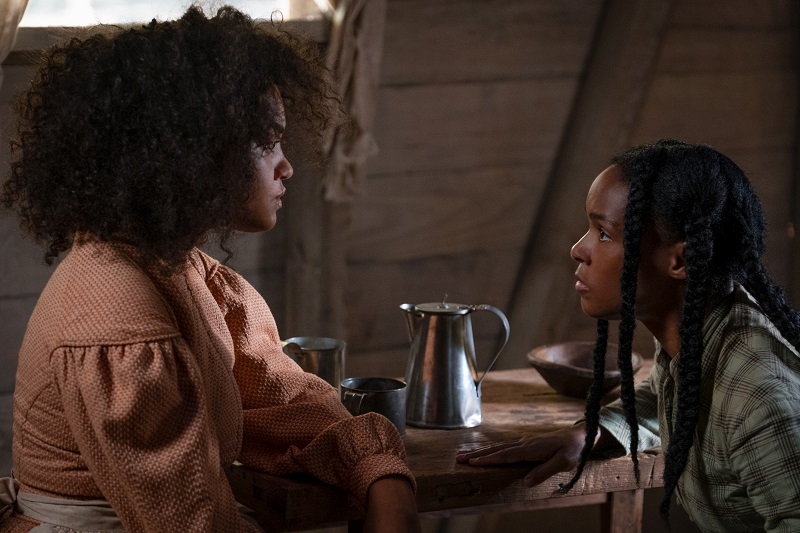
I don’t think that we would exhaust ourselves in spending so much time about it. Does this fit, does this make sense within what we’re trying to say, rather than just saying what we wanted to say in an organic fashion, and pulling together all of those experiences and something that feels real and authentic. It comes from a real and authentic and truthful place.
Don’t miss our “A+” Antebellum review.
The Movie Mensch: Very, very true. Before filming commenced, what did you each believe would be the biggest challenge that you expected from the making the movie portion of the creative endeavor? And now looking back, was that in fact what it turned out to be, or was it something else?
Gerard Bush: Going into it, we felt a tremendous responsibility to all of the artists, both behind the camera and in front of the camera that courageously ventured to make such a film. So, I think at the front of our minds, at the forefront of our minds, the entire time was delivering on that promise of the script, no matter how uncomfortable it may be, and recognizing that it’s a commercial studio film with the biggest major behind it. With that would come restraints. But what we learned is that making a movie is really a war of attrition, when making a movie, especially that is as provocative as Antebellum. But I think that if it was just Christopher and I representing ourselves. I would like to think that we would have been as passionate and fighting about every detail about the movie with the movie, with our studio partner, with our stakeholders. But we felt an even bigger responsibility to do that because of those people that signed onto the film with our vision in mind. Really, what we thought was going to be the battles that we thought we were going to have—that didn’t happen. But it was also about, what was going to motivate us to really stick with it and to make sure that we saw it all the way through?

The Movie Mensch: Well, guys, thank you so very much for your time. Deeply appreciate it. And congratulations, like I said, on the best film of the year.
Gerard Bush: Thank you very much. We really appreciate it.
Christopher Renz: Thank you so much.
Gerard Bush: You made our day!
The Movie Mensch: As you have made mine.

